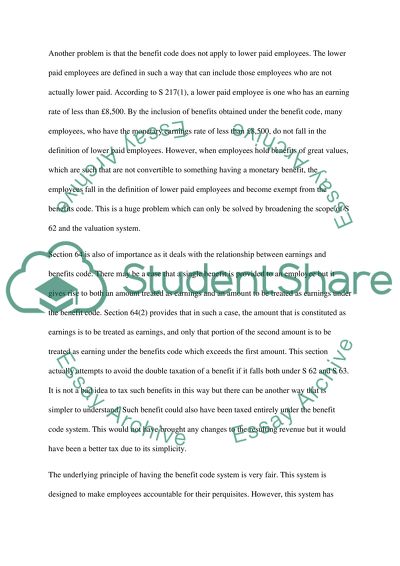Consider the taxation of benefits in kind for employees in the UK, Essay. Retrieved from https://studentshare.org/law/1487110-consider-the-taxation-of-benefits-in-kind-for
Consider the Taxation of Benefits in Kind for Employees in the UK, Essay. https://studentshare.org/law/1487110-consider-the-taxation-of-benefits-in-kind-for.


